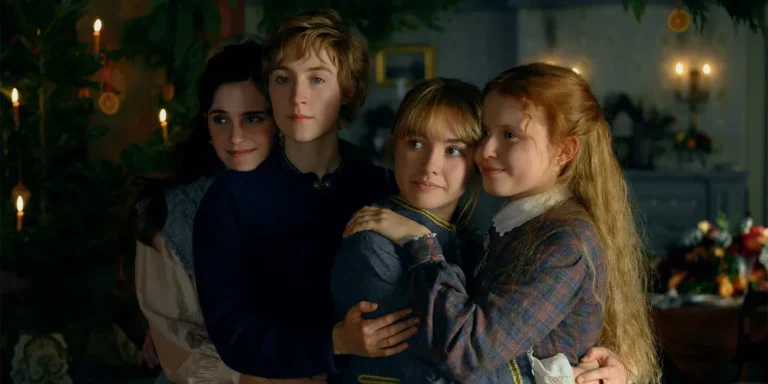Eurovision 2024 promised to be a spectacular event, filled with high-energy performances, stunning visuals, and unforgettable music. But amid the glitter and glamour, one moment stood out for all the wrong reasons – the shocking disqualification of Joost Klein, one of the fan favorites, just before the grand final. Here’s a closer look at what happened and why fans are still talking about it.
The Rise of Joost Klein at Eurovision 2024
Joost Klein, known simply as Joost, is a Dutch rapper, comedian, and internet sensation with a massive following. With his unique blend of humor, energetic performances, and unconventional lyrics, Joost quickly became a standout contender at Eurovision 2024. His track “Europapa” was a hit among fans, known for its catchy beats, quirky lyrics, and high-energy vibe. Many believed he had a genuine shot at bringing the Eurovision trophy back to the Netherlands, just like Duncan Laurence did in 2019.
The Incident That Changed Everything: Joost Klein’s Shocking Eurovision 2024 Exit
Just days before the Eurovision 2024 grand final in Malmö, Sweden, Dutch artist Joost Klein found himself thrust into the center of an unexpected and shocking controversy—one that would ultimately see him removed from the competition. Known for his boundary-pushing performances and electric stage presence, Joost had quickly become one of the fan favorites heading into the final. But all of that came to a screeching halt due to a backstage incident that, in the words of many, changed everything.
The Incident: What Happened?
According to initial reports from backstage sources, the incident occurred after Joost had completed a rehearsal session. During what was described as a private moment—possibly a time of mental preparation or emotional decompression—a camera operator reportedly tried to film Joost. Despite his repeated and verbal requests to be left alone, the camerawoman allegedly continued filming.
Frustrated and clearly agitated, Joost is said to have made a defensive movement with his arm—meant to shield himself from the camera. In the process, his hand accidentally struck the camera equipment. There was no report of physical harm to the operator, and by all accounts, the movement was not aggressive in nature. Yet the act, however unintentional, was seen by the European Broadcasting Union (EBU) as a violation of Eurovision’s code of conduct.
EBU’s Swift Response
The European Broadcasting Union, the governing body behind Eurovision, responded with what many perceived as a disproportionately swift and severe measure. Within 24 hours of the incident, the EBU released a formal statement confirming Joost’s disqualification from the contest, citing a “breach of backstage behavior protocols.”
The EBU emphasized the need to maintain a safe and respectful environment for all staff, performers, and press members, especially given the high-pressure and international nature of the event. While they acknowledged that the situation was under internal review, they stood firm on their decision to exclude Joost from the final.
A Divided Public Reaction
The decision sent shockwaves through the Eurovision community and beyond. Reactions were swift, passionate, and deeply divided. Joost’s supporters, many of whom had followed his career for years, rallied behind him. Social media platforms lit up with hashtags like #JusticeForJoost, #BringBackJoost, and #EurovisionUnfair. Fans pointed to the lack of transparency in the EBU’s process and questioned whether the punishment fit the incident.
“He was provoked and responded in a human way. That shouldn’t be the end of someone’s Eurovision dream,” one fan wrote on Twitter. Others criticized what they saw as a “zero-tolerance policy taken too far,” especially given Joost’s reputation as a deeply emotional and authentic performer.
On the other side of the debate, some defended the EBU’s decision. They argued that, regardless of intent, physical contact with staff or equipment—especially in a heated moment—could not be overlooked. “Rules are rules,” one viewer commented. “Everyone has to follow them, no exceptions. Even fan favorites.”
Joost’s Silence and Official Statement
Initially, Joost remained silent following the disqualification announcement. His social media accounts went dark, leading to growing concern among fans about his well-being. Days later, he released a carefully worded statement through his management team:
“I am heartbroken by what happened. Eurovision meant the world to me, and I never intended to hurt anyone. I reacted in a moment of frustration, and I regret the way it unfolded. I respect the rules of the contest, but I also hope for understanding. Thank you to everyone who has supported me—your love means everything right now.”
The statement struck a chord with many. It reinforced the idea that Joost had not acted with aggression but had instead found himself overwhelmed in an emotionally charged situation. Several fellow contestants and public figures came to his defense, calling on the EBU to reconsider or at least explain the full context of the incident.
What Was Lost
Joost’s song, “Europapa,” had quickly gained traction among fans and bookmakers alike. Its genre-defying mix of humor, nostalgia, and European unity made it one of the most talked-about entries of the year. Critics described it as “a chaotic masterpiece,” and many believed it had the potential to place in the top five—if not win the entire competition.
More than just the loss of a song, Joost’s disqualification removed a crucial element of unpredictability from the contest. His performances were known for being emotionally raw, infused with personal history, and often touched on broader social themes, including mental health and national identity. Without him, Eurovision 2024 felt—at least to a portion of the audience—noticeably more sterile.
Some fans even suggested that Joost’s removal symbolized a broader tension between creative freedom and institutional control within Eurovision. “Are we celebrating expression, or are we just manufacturing spectacle?” one user asked in a viral TikTok discussing the incident.
Broader Implications for Eurovision
This controversy has prompted broader questions about Eurovision’s backstage policies and how performers are treated under extreme stress. Multiple artists from past years, speaking anonymously, have since shared stories of tense backstage moments, overexposure to media, and limited privacy.
Calls for more mental health support for contestants have grown louder in light of the Joost incident. Some advocate for the creation of “quiet zones” or private areas where performers can decompress without the presence of cameras or press.
It also raises a fundamental question about fairness and due process. In a contest that claims to celebrate diversity, should there be more room for nuance and context in disciplinary actions? Joost’s case could serve as a catalyst for future reform—though for now, that’s little consolation to the artist himself.
What’s Next for Joost?
While Eurovision 2024 may no longer be in his future, Joost’s career is far from over. If anything, the outpouring of support has only strengthened his bond with fans. Streams of “Europapa” have surged since his disqualification, with the song reaching new chart positions across Europe.
Rumors suggest that Joost is already planning a new European tour titled “Still Here,” with dates expected to be announced soon. Industry insiders predict that this controversy, rather than dimming his star, could catapult him into even greater visibility as a symbol of resistance and authenticity in a hyper-curated world.
Some fans are even pushing for him to return to Eurovision in 2025—with the Dutch broadcaster reportedly exploring their options for re-nomination. Whether or not that happens, Joost Klein has become more than a contestant—he’s now part of Eurovision’s storied history.
Aftermath and Moving Forward
In the weeks following the disqualification, Joost remained largely silent, focusing on his recovery from the emotional toll of the incident. In a later statement, he expressed his deep disappointment and described the experience as one of the hardest moments of his career. He thanked his fans for their overwhelming support, promising to come back stronger.
Meanwhile, the incident sparked broader conversations about the treatment of artists, privacy rights, and the pressures of high-profile events like Eurovision. Some have even called for reforms in how the EBU handles such cases, demanding more transparency and fairness in their decision-making process.
Final Thoughts: A Missed Opportunity or a New Beginning?
For Joost Klein, the Eurovision 2024 incident was a heartbreaking chapter in an otherwise skyrocketing career. Once poised to captivate an audience of millions, his Eurovision journey ended not with the roar of applause on the grand final stage, but in the deafening silence of disqualification. And yet, in that silence, a different kind of resonance began—a story not of defeat, but of resilience, public support, and artistic integrity.
Joost’s removal from the contest didn’t mark the end of his relevance. If anything, it elevated him from just another contestant into a symbol of creative independence in a system often constrained by bureaucracy and image management. His emotional authenticity, already present in his music, became even more visible in how he handled the fallout. He didn’t lash out. He didn’t fuel drama. Instead, he chose reflection, humility, and grace—qualities not always expected from a performer so closely associated with energetic irreverence and chaotic charm.
For many fans, this made them love him even more. His vulnerability wasn’t seen as weakness—it was seen as a mark of his humanity. And in today’s hyper-curated entertainment industry, where every gesture is often rehearsed and controlled, that kind of raw honesty is rare and powerful.
The questions surrounding the incident—about privacy, media ethics, and the treatment of artists under pressure—have not faded with the closing notes of Eurovision 2024. If anything, they’ve grown louder. Joost’s case has become a touchpoint for a broader conversation about how we treat artists in high-stakes environments, especially young ones who are navigating fame while staying true to their creative identity.
Eurovision, for all its glamour and spectacle, now finds itself at a crossroads. The contest has always prided itself on embracing diversity and artistic freedom, but the Joost incident exposed the delicate balance between that ideal and the operational reality. It forced viewers, organizers, and participants to ask hard questions: How much space is truly given to artists to be themselves? Are all contestants treated equally under pressure, or are some penalized more harshly because they don’t fit the mold?
From this perspective, Joost’s disqualification was more than just a missed opportunity—it was a wake-up call. It exposed the fault lines in a system that celebrates uniqueness on stage but sometimes struggles to accommodate it behind the scenes. It challenged the contest to do better—to not just spotlight diversity, but to structurally support it.
At the same time, Joost’s journey may well be the beginning of a new chapter not just for him, but for Eurovision itself. Public pressure has already begun to shape conversations among national broadcasters and organizers. There is talk of introducing clearer protocols for privacy and emotional wellness, and even revisiting the process through which disciplinary actions are reviewed and communicated. Whether these changes will materialize remains to be seen, but the conversation has started—and that’s something Joost helped catalyze.
On a personal level, Joost seems to be emerging from the experience not diminished, but emboldened. His social media, once quiet in the days following the controversy, is now pulsing with life again—filled with fan messages, behind-the-scenes content, and cryptic teases about new music. Industry insiders suggest that Joost is already back in the studio, channeling his emotions into songs that reflect on not just Eurovision, but on fame, pressure, and authenticity.
There’s even speculation that his next album will be thematically centered around the Eurovision experience itself—not just the event, but what it represented for him: the clash between individuality and conformity, vulnerability and expectation, art and spectacle. If true, such a project could become one of his most defining works yet.
And what of Eurovision? The show, of course, went on. A winner was crowned, flags waved, fireworks exploded. But among many fans, the memory of Joost’s absence lingered like a song that ends too soon. Eurovision 2024 may be remembered for many things—the host city of Malmö, the performances, the fashion—but inescapably, it will also be remembered as the year Joost Klein was disqualified. That story has become part of the mythology now, woven into the fabric of Eurovision’s complex legacy.
In time, perhaps Joost will return to the contest under different circumstances—either as a performer, a songwriter, or simply as a guest. But even if he never steps on that stage again, his presence will be felt. He showed the world that an artist’s worth is not defined by trophies or televised moments, but by the connection they forge with people who see themselves in the music, the struggle, and the spirit.
In the end, was it a missed opportunity? Absolutely. But was it also a new beginning? Without question.
Joost Klein walked into Eurovision 2024 as a contestant. He walked out as a symbol—flawed, human, and fiercely original. And in an era that too often prioritizes polish over truth, perhaps that’s the most meaningful stage of all.













